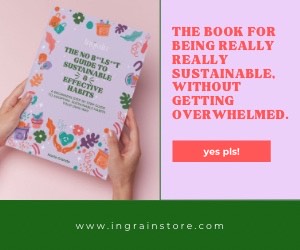Just as the likes of The Klaxons and Simian Mobile Disco followed their pointers to start a ‘movement’ that flickered briefly but brightly and led to a Mercury Prize Award for the band, Hynes and co. declared they didn’t like their own music after all and split. The first Lightspeed album Falling Off the Lavender Bridge appeared two years ago, and offered up a sumptuous blend of countrified folk-pop. The follow-up, Life Is Sweet! Nice to Meet You, is a touch more dramatic and orchestral, though no less catchy, diverse and refreshing.
Sublime: You lost your voice for a while, didn’t you? What happened?
It developed slowly over a few years, but it came to a head a year or so ago. I’d been touring non-stop, and didn’t really know how to sing. At the time it was never in my mind, the idea that there were different ways of singing, some that harmed you and others that didn’t. I never saw myself as a singer. I’d just do whatever it took to get the noise out. I’ve now learned there are right ways to sing. I had to go into hospital on my birthday, 23 December. I couldn’t talk for a couple of months. Then it was whispers, speech therapy, and then I recorded this last album in March.
S: Life is sweet! Has more extensive and precise orchestral arrangements than anything you’ve done before
I was writing a lot of classical music before this album. At one point I wanted to study music properly, at college. I was really serious about doing it: I was talking to tutors from universities, emailing them, showing scores I was writing. I knew I also wanted to do this next Lightspeed album, but there was a long period of waiting and deciding who was going to produce it and so forth, and in the meantime somehow I ended up arranging the whole thing. The original idea was something along the lines of a Nina Simone record I like called Broadway-Blues-Ballads. It’s the one before the big one, so it doesn’t get as much attention but it does have ‘Don’t Let Me Be Misunderstood’ on it. I wanted to approach the album like a lot of 60s and 70s artists, but I didn’t want it to sound as if it was from that time.
S: There’s a large dose of playfulness involved, isn’t there?
Completely. It’s just fun to see the outcome, whether it’s successful or not. I like seeing the outcome of unusual combinations because to me it’s always gonna be music. I love the mixing and matching.
S: And then there are those lovely instrumental pieces between the songs. They remind me of Nick Drake’s Bryter Layter. That album also has instrumental pieces that set a new atmostphere for what follows
That’s exactly what the plan was! I recommend getting the double vinyl version of the album. It’s separated how I planned it, and it makes a lot more sense listening to it. It’s like a Todd Rundgren thing, he did that with Something/Anything?. He would always separate groups of songs and still have it flow in a cool way. I spend a lot of time thinking about the sequencing of the songs. I have the track listing ready before I even begin recording anything.
 S: Are you a fan of vinyl, or a fan of the album format, twenty minutes per side?
S: Are you a fan of vinyl, or a fan of the album format, twenty minutes per side?
It’s the format. I’m not a vinyl enthusiast. I have a lot of vinyl, a lot of CDs and a lot of MP3s. But the reason I like vinyl is the sense of enjoyment that comes with the act of putting on a record. I’m not one for the recent blog culture. The idea of almost over-analysing music and putting it on this insane pedestal to the point where it’s not even fun any more, and leaving mean comments, everybody blogging about ‘this is the best new mind-blowing thing’, or ‘this is the worst garbage this band has ever done’ – I don’t like that at all. I feel it comes from the fact that people don’t just put a record on and play it and enjoy it any more. When you put on an album, you think about when you were younger and you went out and bought an album, you listened to it and you liked it. You liked it before you bought it!
S: Do you regard your songs as a kind of entry in a diary?
Pretty much. I write lyrics really fast, in 20 minutes, in the same way your mind wanders when you’re just thinking about stuff. I’m just writing what it is that happens to be on my mind.
S: As a general theme, homesickness seems to pop up quite a few times on this album
The songs were written mainly at the point when I was wanting to leave London, and then leaving London, and just afterwards in New York, just settling. A few songs were written in London, and are kind of anti- London. And then there’s a load that are weird love letters to England.
S: Did you go to New York to give yourself a chance once in your life to see Britain, the place you came from, from a different perspective?
Definitely. And it’s done that. I didn’t think of it at the time, but I’m glad it’s done that because I really needed it. It got to the point in London where I was full of such bitterness and resentment and awful emotions. I hated the fact that you were expected to like or dislike certain things just so that you fitted certain stereotypes, like if you were working-class you had to like shambolic guitars. I wanted to be able to talk about the things that made me and that I like without getting weird looks. Things like Gilbert and Sullivan, Michael Nyman, Queen, the parks, and all that kind of English stuff that I think is awesome. Literature! That’s reflected in the album title. Somehow it’s seen to be cool to be negative. But it’s so easy to be down on things. I’ve always loved the positive. Things that are overtly happy, or trying to be happy or hopeful.
 S: You were involved in an event at the Barbican to commemorate the life and times of Moondog, the New York street performer and composer. How did that come about?
S: You were involved in an event at the Barbican to commemorate the life and times of Moondog, the New York street performer and composer. How did that come about?
That was one of the craziest things I have done and probably will do in my life. The Barbican, who put it together, literally just asked me by email if I liked, and had heard, Moondog. ‘Of course I do!’ Did I want to be involved? ‘Definitely, no doubt!’ I love being surrounded by an orchestra. I miss that feeling, hearing an orchestra tune up. I hadn’t heard that since I was fourteen, playing cello in the school orchestra. That sound is so soothing. It was such fun, meeting all those people who’d been working with Moondog. Some of his original players were there, and Andy Thomas. I worked with him on Fujiyama Part 2 which he’d recorded with Moondog. All those people had amazing stories.
S: You’ve also been recording with the legendary Van Dyke Parks, who worked with Brian Wilson on the Smile project, and has made his own eccentric and superb albums such as Discover America. Did you phone him up and say, ’Hey, Van, let’s make an album?’
It started because I wrote some songs which I originally intended for this album that I wanted someone else to write the arrangements for. I sent an email to Owen Pallett and asked him to do it. He politely declined. Then he said, off-handedly, ‘Why don’t you try Van Dyke Parks?’ I said, ‘Well, [puts on ironic voice] thanks for the, erm, advice.’ I mentioned this to Lawrence [owner of record label Domino] and he thought it was a great idea, so he got in touch with him. One day I get an email: ‘Hello, Dev.’ I shut my laptop and didn’t open it until the next day because I couldn’t deal with that. I was overwhelmed. It was a really long, wordy essay, talking about his music, my music, about how we’d make music together, all this stuff. It was really amazing, perfect grammar, perfect punctuation. At the bottom it said, ‘Sent from my iPhone.’ That just blew my mind.
S: You got to sit in the same room with him and arrange?
Yeah, we worked on some songs. Afterwards, I spent months listening to the stems of the individual tracks, just obsessing because to me it’s new Van Dyke music. And then the afterthought, Oh my God, I wrote this, I can’t believe this happened to me! Incredible. So I put the songs on the album – and the people weren’t happy. I forget that he’s quite an acquired taste. I love his stuff so much I’m kind of blinded. But not a lot of people can stand a 32-piece-orchestra barrage of melodies. So then I suggested we take them off the album and have a separate record. We did all the artwork, it was all ready to go, and then at the last second it got pulled. I don’t know when anyone’s ever gonna hear it.
S: Apart from writing songs with other people –Beyoncé’s sister Solange, for instance – and writing short stories, in your spare time, you told me last time we met, you enjoy rerecording whole albums by other artists just for the fun of it, for yourself. Do you still Do this?
Oh, yeah! I’m just finishing A Wizard, A True Star by Todd Rundgren. I covered it in its entirety, every part, and I tried to make it exactly like the original. I’ve played it to a few people, maybe three, and only just bits, and they all think – it’s either a compliment or not, I’m not sure – they think it’s the best thing I’ve done. And I think it’s the best thing I’ve ever done!
Lightspeed Champion, Life is Sweet! Nice to Meet You (Domino)

















